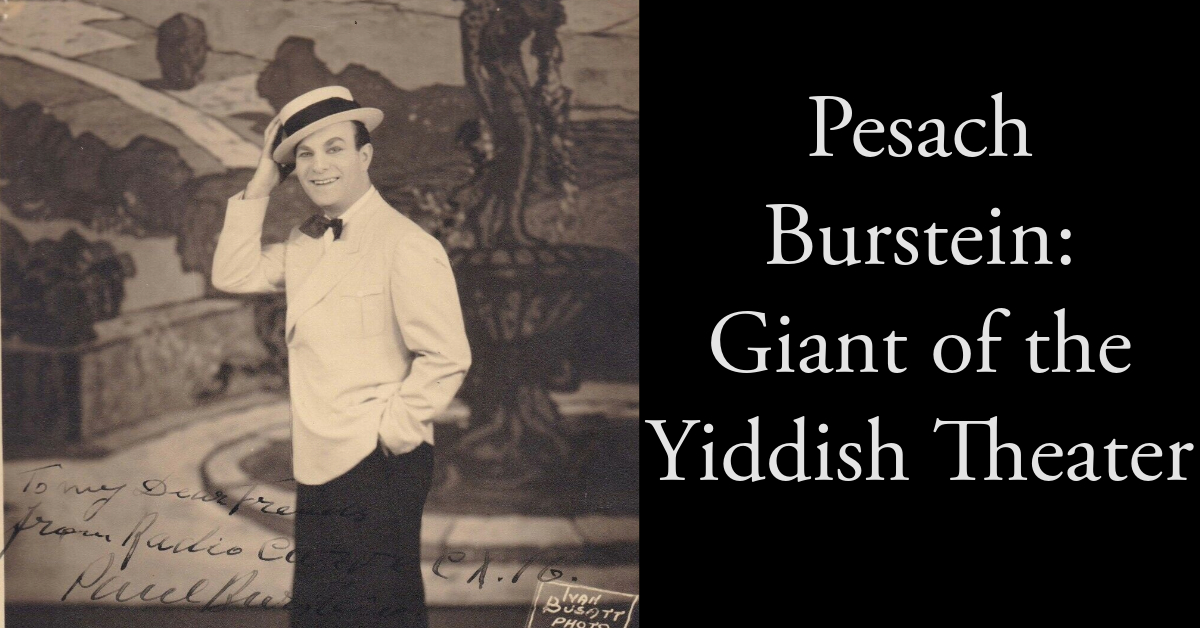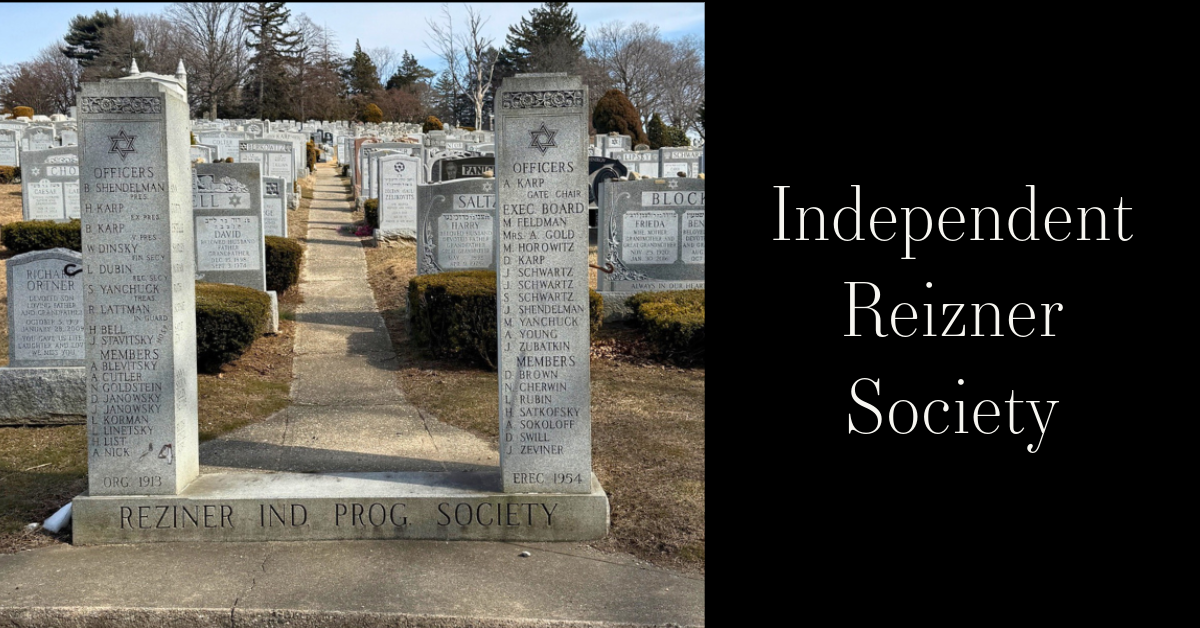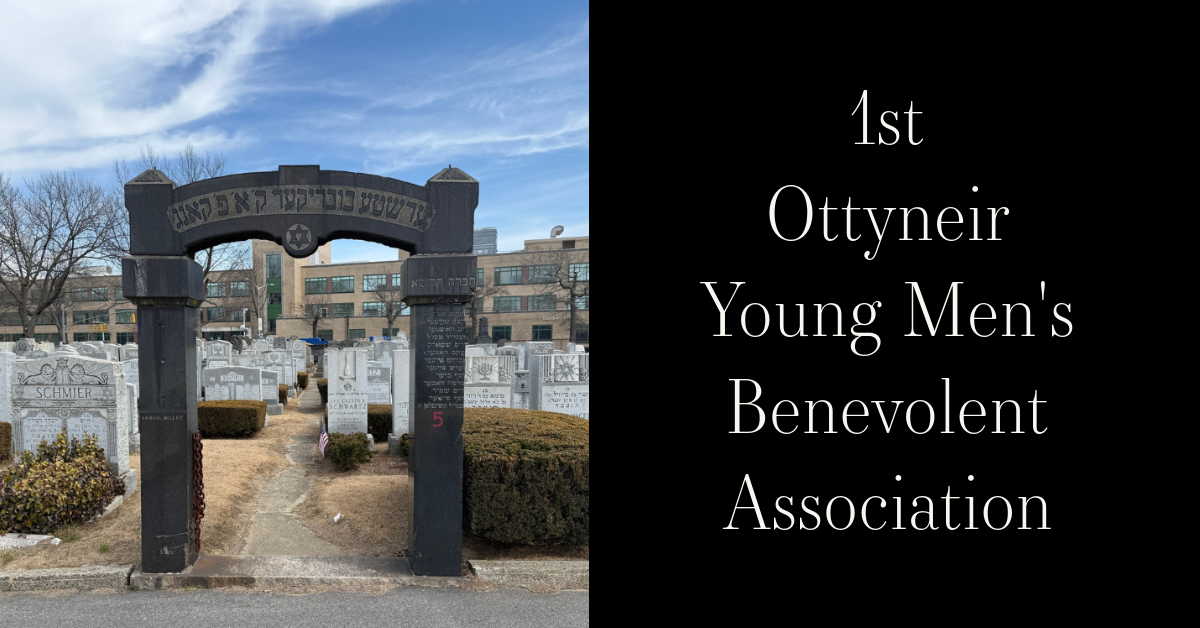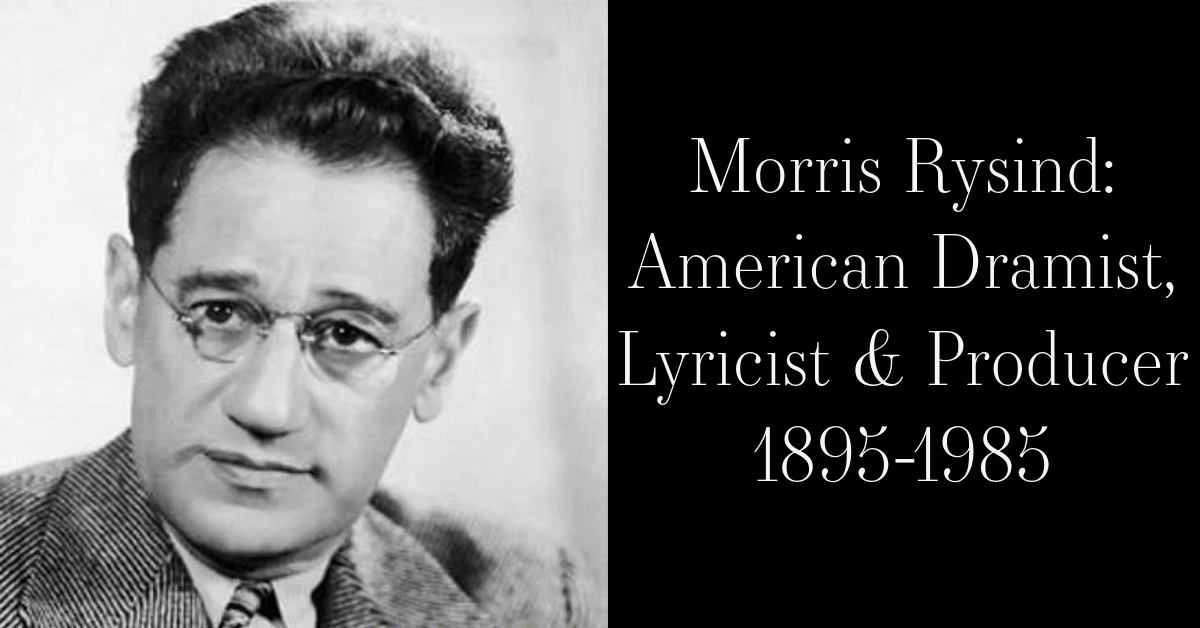Story Summary:
Pesach Burstein was just a teenager when he joined a Yiddish Theatrical Troupe in Russia. Shortly after arriving in the USA, he became a major Star in the Yiddish Theatre. Pesach recorded over 300 discs of Yiddish songs and his voice soon became one of the best known in Yiddish music.
Pesach was a multi-talented performer. He was a singer, dancer, comedian, coupletist, stage whistler and director. Pesach formed a Troupe with his wife and children called "The Four Burstein's." The group toured internationally and made a name for themselves bringing Yiddish language productions to Yiddish speaking audiences around the world.
Pesach Burstein – Giant of the Yiddish Theatre

Pesach Burstein was born in April 15, 1896 in Pultusk, Poland. He was called by the nickname “Pesachke,” since he was born on the eve of Passover (Pesach). His name was chosen when his mother was washing the floor for Passover and Pesach was suddenly born. Pesach’s father, Mordechai, operated a clothing store and his mother, Rivka was a homemaker. When Pesach’s family relocated to Russia, Pesach began working with a local circus. He was a lad of just ten years old. A few years later, in the midst of the first World War, Pesach was arrested by the Russians and accused of being a spy. He managed to escape and he became a wandering Minstrel who traveled from country to country bringing his songs and his humor where ever he went. Pesach also performed at the Miniature theatre of Lodz, in Vilna and in Kovno, Lithuania.

After approximately 5 years, Pesach left home and never saw his family again. Pesach joined a traveling Yiddish theatrical troupe when, after just one performance, he lost a good deal of revenue due to poor box office receipts. Pesach contacted his father who wired him fifty rubes in order to return home. The Company Manager intercepted the money, unbeknownst to Pesach. Thus, Pesach had no alternative but to continue traveling with his troupe. Sometime later, Pesach started his own miniature theatre in Konstantinova, Poland.

In 1923, when Pesach’s fame was steadily increasing, he was contacted by a man named Boris Thomashefsky. Boris was a Polish American actor who had been bringing Yiddish performers to the United States. Boris recognized Pesach’s talent and brought him directly to Broadway where he played upstairs in the Nora Hayes Theatre while Al Jolson played downstairs at the same theatre. The Manager of the Foreign Language Department of Columbia Records was in the audience. After Pesach’s show, the man went backstage and made a next day appointment with Pesach. The following day, the man handed Pesach a 20-year recording contract with Columbia Records. Pesach recorded the song “Sonny Boy” in Yiddish on the same day that Al Jolson recorded the same song, using the same studio and the same orchestra! Over his career, Pesach recorded over 300 discs of Yiddish songs. He later joined a troupe, that was sponsored by Mr. Thomashefsky, to perform on the Lower East Side in the Yiddish Theatre District in Manhattan.

In the years after his performances for Thomashefsky, Burstein founded his own theatrical companies in the Bronx and in Brooklyn. These included the Hopkinson, Liberty, Mckinley and Prospect theatres. Pesach’s most famous performances were: Yiddish King Lear, The Comedian, the Jewish Spark, Little Mother, and Di-Kuni-leml. Pesach performed every winter in New York and every Spring in Poland, where he widely popular. Pesach was a song and dance man who wrote “couplets,” which were songs that Pesach wrote himself and then performed. In 1927 Pesach became a member of the Yiddish Actor’s Union.
In 1938, Pesach was planning his theatre company’s South American tour. He hired Lillian Lux, an American singer and actress, to join the company in Argentina. The two had previously been partners in the theatre. While still on tour, Pesach and Lillian were married in Montevideo, Uruguay. Thereafter, Pesach began to play roles alongside his wife and they soon became a power couple in the Yiddish theatre.
Pesach rented a large Warsaw theatre for both the 1938-1939 and the 1939-1940 seasons. Due to the urging of the American Consul, Pesach was convinced to leave Poland. However, at that time, ships to New York were booked solid as people tried to flee Europe in advance of the war. Pesach contacted a ship steward that he knew who fortunately recalled Pesach entertaining his passengers on a crossing five years earlier. The steward gladly secured a cabin for the couple on the 8/26/39 sailing in exchange for them giving a performance to the passengers on the current ship. This boat was the last ship out of Poland and Pesach soon learned that Hitler’s army had marched into Poland the day after the ship began its voyage. The manager of the Warsaw theatre that Pesach had rented, remained at the theatre to keep on eye on the scenery and costumes and was subsequently never heard from again.

In 1945, Pesach became a father of twins named Susan and Michael. When the children were 7 years old, Pesach and Lillian decided to form a family Yiddish Theatrical Company which they called The Four Burstein’s. Together, the family traveled throughout the world starring on stage, television, in films, and on radio programs. The Four Burstein’s brought Yiddish music and theatre to life on stage via musicals and melodramas produced by Pesach. They blended humor, music and drama into their songs, skits, and plays which captivated audiences. Pesach possessed a remarkable talent for whistling through his fingers. His ability to produce melodious tones by whistling added a distinctive and captivating element to his performances. In the show “A Wedding in the Village”, Pesach combined singing, acting and whistling to create a delightful and engaging experience in the audience. The family also performed at resorts in the Catskills (Sullivan County, New York), a resort circuit known as the “Borscht Belt.” The Four Burstein’s won critical acclaim in Israel and on Broadway for performing Itzik Manger’s show, “Manger’s Lider,” the longest running Yiddish production to date in Israel. The show was released on Broadway and entitled, “Megilla of Itzik Manger.” Where ever Pesach went, he met people he had met in other times and places. The Four Burstein’s were greeted warmly in every locale because they were the messengers of Yiddish popular culture which they shared with far-flung Jewish communities.

In 1962, the Burstein family moved to Israel which remained their homebase for 20 years. They remained dual citizens moving between Tel Aviv and New York as they continued their international appearances. At Pesach’s 80th birthday, there was a celebration for him at the Mann Auditorium in Tel Aviv. Pesach appeared in two award winning Israel films: Salah Shabati (1964) starring Topol and Schnei Kuni Lemel (1966) starring his son Mike. Pesach spent time entertaining Israel soldiers behind the front lines during the 6 Day War. In his later years, Pesach used his spare time to work on his autobiography, which was coauthored with Lillian, and entitled “What a Life!”
“The Komediant” is an Israeli documentary directed by Armon Goldinger and released on what would have been Pesach’s 100th birthday. The documentary is based on the lives of the Burstein family. It garnered a Goldy Award, which is the Israeli equivalent of an Oscar, for its portrayal of this theatrical family and their impact on the Jewish entertainment world. In 1986, Pesach was honored for his contributions to the Yiddish Theatre and awarded the Izik Manger Prize.
In Europe, Pesach was known as the Jewish Maurice Chevalier. At a meeting between the two men, they exchanged canes. Until Pesach died, he used the silver cane with the “M.C.” engraved that he got from Maurice Chavalier. Pesach passed away a few hours before Passover in 1986, prior to his 90th birthday. He was interred in the Yiddish Theatrical Alliance section, Block 670, of Mount Hebron Cemetery.

BLOG BY RENEE MEYERS





















